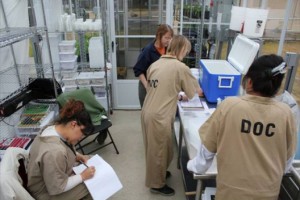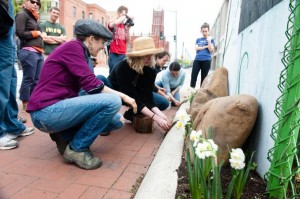By wogwpa1358 on April 9, 2012 / Family, Featured Post, Leadership
Tags:
bio energy,
biodiversity,
Carolyn Parrs,
climate change,
eco moms,
Indigenous Peoples,
Indigenous women,
market based approaches,
Rio+20,
toxic release,
women in green,
women of green

From Global Forest Coalition
Keith Brunner from Gears of Change Youth Media Project reports back from the side event “Women’s critical perspectives on the green economy” carried out during the UN Rio+20 intercessional (March 25-27) at the UN headquarters in New York.
The “green economy” will be a shot in the arm for ailing global markets- a rush of new commodities and investment frontiers, packaged neatly within a UN mandate for “sustainable development.” But how will it affect those who are already the most marginalized?
This afternoon I attended an event entitled “Women’s critical perspectives on the ‘green economy.” Participants painted a picture of a future far different from the heady visions on display at the corporate side events. The “green economy,” according to the panelists, will exacerbate already growing gender violence, urban migration and loss of traditional skills and knowledge amongst women, with women in the Global South being hit the hardest.
Isis Alvarez, with Global Forest Coalition, began the panel by noting that: “Biodiversity and the environment turned into marketable goods seems to be the current approach to conservation. And markets necessarily need privatization. But what are the consequences for women, if a resource which used to be accessible is now privatized?”
She continued: “Women usually provide their families with key resources for their livelihoods, such as fuel wood, medicinal plants, fodder, food, nuts, they collect seeds, so biodiversity means everything to them, as they depend on the non-monetary benefits of biodiversity.”
Continue reading... →








